Types of Therapy for Drug Addiction
For many of the millions of Americans struggling with substance abuse and addiction, the first step towards recovery is accepting (or acknowledging) their battle with substances. The next step is finding an addiction treatment program that meets their unique treatment needs. With thousands of addiction treatment programs across the nation offering different treatment options, it can be challenging to determine which one is best for you. It is essential to remember that addiction is an individual challenge that must be met with treatments centered around you. There is no such thing as a one size fits all addiction treatment program. Recovering from addiction is not easy, but with the help of Los Angeles addiction therapists at Crosspointe Recovery, you can take the first steps towards healing and sobriety.
What Is Drug Abuse Therapy?
Drug abuse therapy is a specific set of therapeutic treatments intended to help someone struggling with addiction defeat addictive patterns. Through therapy, you will learn coping skills to help stop drug seeking and use. Most drug abuse therapies can take place in various settings and last for varying lengths of time. Unfortunately, addiction is typically a chronic disorder characterized by relapse. Because of this, short-term or one-time treatment often is not sufficient to achieve and maintain long term sobriety. Many studies show that relapse rates for substance use disorders fall between forty and sixty percent. Several evidence-based addiction treatment models are commonly used in various treatment settings. The specific type of therapy used depends on the person’s unique needs, the substances they use, and whether they have previously completed addiction treatment and experienced a relapse.

Why Do Addicts Need
Substance Abuse Therapy?
Addiction is more than merely a physical dependence on a particular substance. Even after you have successfully detoxed and your body is no longer “hooked,” you remain at high risk for relapse. There are many daily psychological triggers that can promote the ongoing urge to use or return to using. Addiction treatment programs help you learn to manage these cravings and the triggering events that cause them without needing to use.
Request a Confidential Callback 24/7
Types of Therapy for Addiction
There are several types of counseling therapies used in Los Angeles inpatient drug rehab centers. Most addiction programs ensure treatment programs are different for each person, and the type of program you participate in can be customized to fit your unique situation. The most successful treatments address the symptoms and underlying causes of your addiction and any co-existing mental or physical health conditions with which you may struggle.
Addiction treatment programs generally consist of a combination of individual and group therapy sessions. During these sessions, a therapist trained in addiction treatment will provide education around recovery skills essential for achieving sobriety and dealing with stressors without turning to substances to cope. Behavioral therapies are the most commonly utilized therapeutic treatments used in addiction treatment.
CBT
CBT or cognitive-behavioral therapy is one of the most commonly utilized addiction treatment models. CBT can be successfully applied across a variety of addiction and substance use disorders. Cognitive-behavioral therapy aims to help you learn to recognize and change maladaptive behaviors and thought processes. Cognitive-behavioral therapy can help you develop healthy coping skills, identify risky situations, and learn how to apply your healthy coping skills to those situations while preventing relapse. Cognitive-behavioral therapy is often paired with other techniques, and the skills learned through these sessions continue to be beneficial long after initial treatment ends. Another benefit to cognitive-behavioral therapy is it can be used to treat co-occurring mental or physical health disorders.


DBT
Like cognitive-behavioral therapy, dialectical behavioral therapy or DBT can be adapted for many substance abuse situations; however, DBT mainly focuses on treating severe personality disorders. Dialectical behavioral therapy works to reduce cravings, help you avoid situations or opportunities to relapse (triggers), learn healthy coping skills, and give up those habits or actions that reinforce ongoing substance abuse.
Talk Therapy
Unlike some other types of therapies, talk therapy does not have a specific description or therapeutic outline per se. Talk therapies help treat addiction and other underlying mental health conditions by focusing on the healing benefits of communication or talking. The therapeutic relationship built between a therapist and the addict through communication can help navigate experiences and other troubling situations that may affect addiction and mental health. In some cases, cognitive-behavioral therapy and dialectical behavioral therapy are classified as forms of talk therapy.


Breathwork Therapy
The idea behind breathwork therapy is providing the mind something to occupy itself beyond thoughts of drugs or alcohol. During the period when the brain is quiet and not occupied by substance-seeking, the brain calms, and the individual can experience what it’s like to be connected with themselves instead of connected with their addiction. For many, suppressed emotions come to the surface, and they are presented with the opportunity to heal old trauma.
Group Therapy
A significant challenge many addicts face is isolation. The further down the addiction rabbit hole they go, the harder it is to communicate with others who do not share addictive behaviors. The idea behind group therapy is to help addicts develop and practice communication and socialization skills in an environment free of alcohol or drugs. During group therapy sessions, you will also learn how to express your fears or concerns and accept criticism or suggestions from others. Group therapy also helps to develop self-awareness while forming a solid group of sober peers you can lean on after addiction treatment has ended.


Family Therapy
Addiction has a significant, detrimental impact on the family unit. When seeking help as a family member or seeking help for families of addicts, it is essential for those connected to the addict to receive support too. Family therapy focuses on the relationships of the family with someone struggling with addiction. Family therapy does not push aside or ignore that each family member may be struggling with the person’s addiction in their own way. The goal of family therapy is to bring clarity to all relationships and help to repair the damage done by addiction. Family therapy will also help family members learn how behaviors such as enabling, can hinder the healing process. Many family therapy sessions also include education about addiction, sobriety, and healthy coping skills.
Yoga Therapy
Many addiction treatment centers across the United States have begun using alternative or holistic therapies in conjunction with traditional therapies such as cognitive-behavioral therapy or other talk therapies. Yoga therapy is one such complementary therapy. It is most beneficial when used in conjunction with other traditional substance abuse treatment models. Besides addiction treatment, yoga has many potential benefits, including stress relief, increased self-awareness, increased self-confidence, and overall health and wellness benefits. As part of the addiction treatment model, the benefits of yoga can help enhance the success of addiction treatment. In addition, yoga (and other meditative practices) are excellent skills to use beyond initial treatment during the recovery phase to help prevent relapse, reduce withdrawal symptoms, and provide a healthy outlet when faced with potential triggers and daily life stressors.

We Work With Most Major Insurance Providers






Crosspointe Recovery works with most major insurance carriers who provider out-of-network benefits to help cover the cost of treatment at our facility. To find out if we work with your insurance, click the button below to begin the process.
Why Do Addicts Need
Substance Abuse Therapy?
Addiction is more than merely a physical dependence on a particular substance. Even after you have successfully detoxed and your body is no longer “hooked,” you remain at high risk for relapse. There are many daily psychological triggers that can promote the ongoing urge to use or return to using. Addiction treatment programs help you learn to manage these cravings and the triggering events that cause them without needing to use.
Which Drug Addiction Therapy is Right for You or a Loved One?
Addiction is a chronic yet treatable condition that millions of Americans struggle with each year. Currently, there are over 14,000 addiction treatment facilities in the United States alone, making deciding on the perfect treatment program and addiction therapy seem daunting. Each rehab has different specialties and provides various addiction therapies. Also, even those with the same specialty often have different paths for helping you achieve your goals. To ensure addiction treatment is successful, it is vital that you select a treatment facility whose treatment models align with your rehab goals.
It is helpful to consider the type of treatment you will need (inpatient or outpatient), if there are any underlying illnesses or dual diagnosis, if you are interested in alternative therapies, and if detox may be necessary before you can successfully begin treatment. After you’ve considered all these factors (and some will be more important than others), you can start to investigate various rehab options to narrow down the list and determine the right one for you. Take the time to make phone calls and ask questions. Addiction treatment cannot be successful if you are not comfortable in the program that you choose.
Don't Wait for Another Time or Day.
Today is the Day to Quit Using for Good.
Crosspointe Provides Personalized and Diverse Types of Drug Addiction Therapies
At Crosspointe Recovery, we understand the decision to seek addiction treatment may be one of the most difficult you will ever make. At our Los Angeles based rehab, we will work with you to create a treatment program designed specifically around your unique treatment needs. Our highly skilled staff is trained in various kinds of therapy for addiction, including traditional therapies such as talk therapy and alternative therapies, including breathwork and yoga.
The most successful addiction treatment programs are those that put your treatment goals and needs first. Addiction is a unique and individual struggle, and therefore cookie cutter, one size fits all models cannot lead to long-term sobriety and recovery. If you are ready to seek addiction treatment in Los Angeles, contact our caring and compassionate admissions team at Crosspoint Recovery today. Let us help you start down the path to a healthy, sober life free of addiction.
